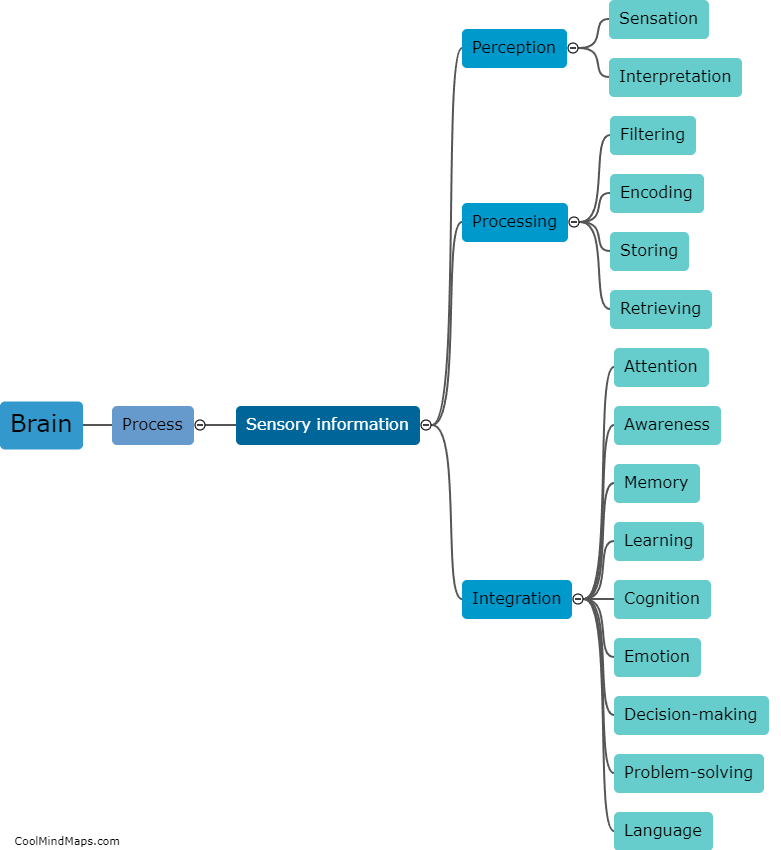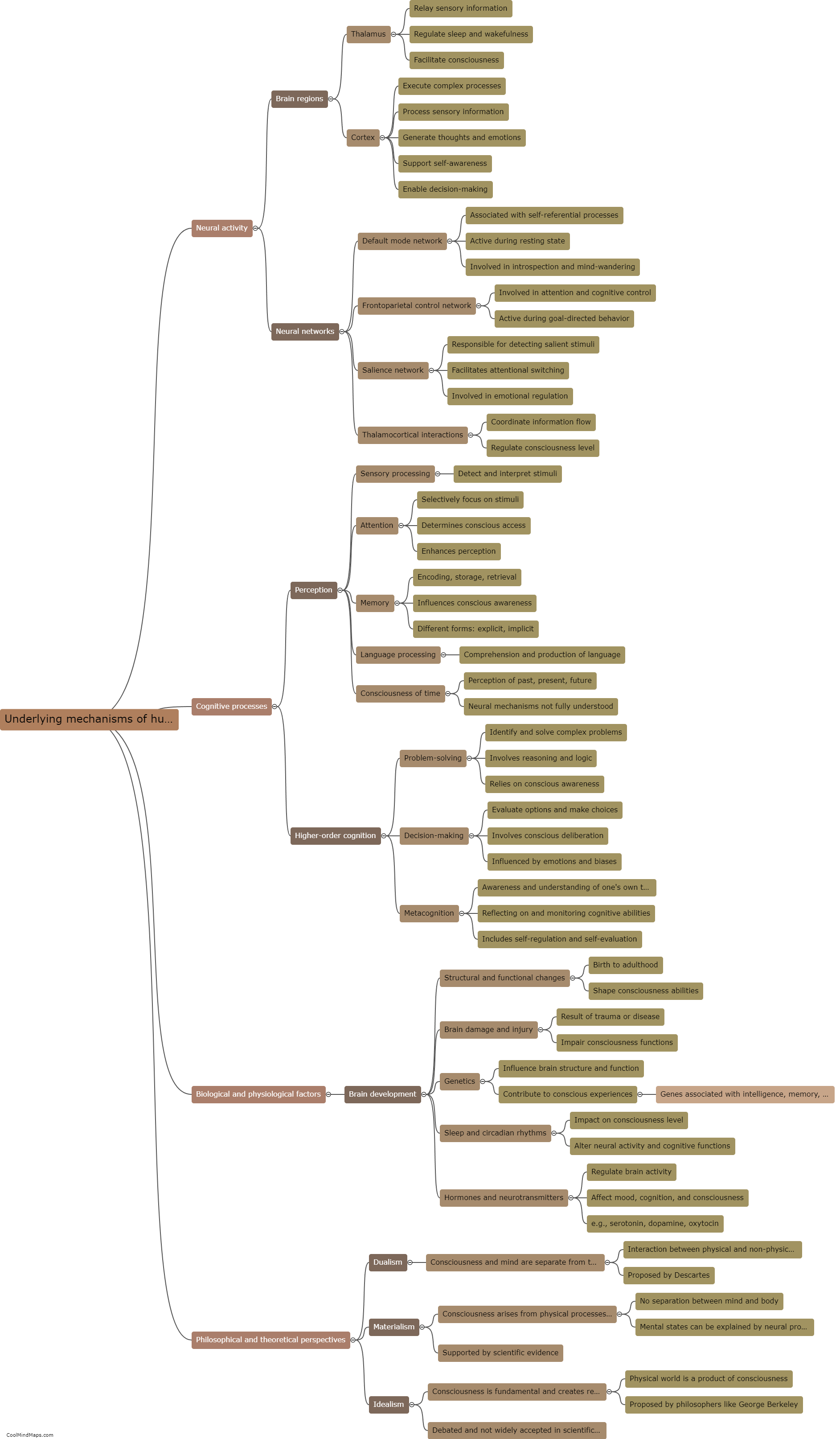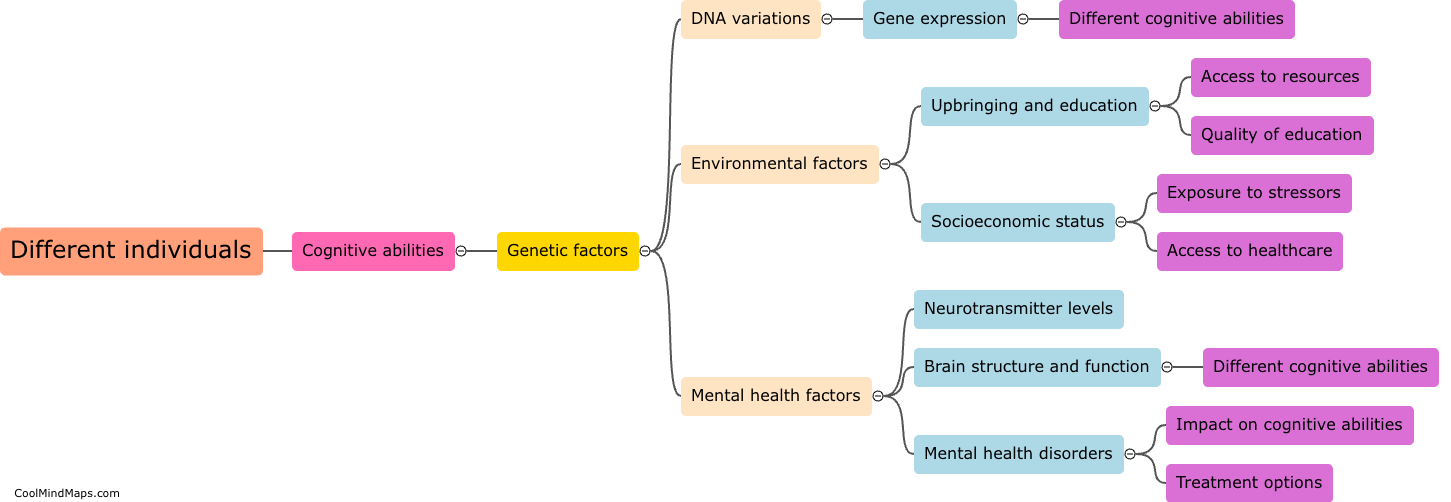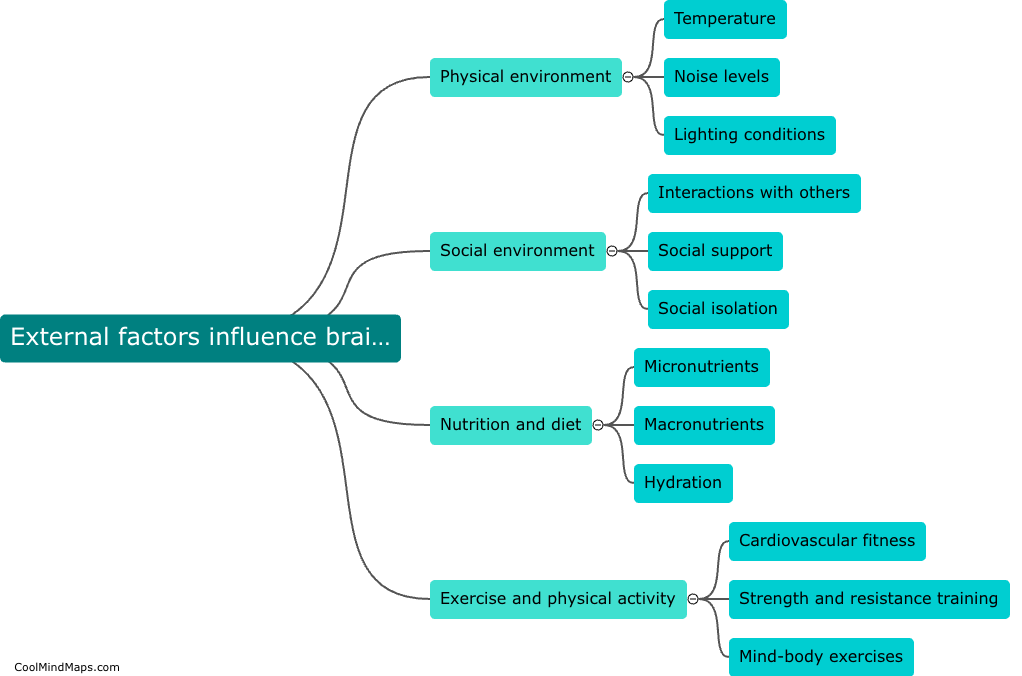How does the brain process and interpret information?
The brain is a complex organ responsible for processing and interpreting information that is received through our senses. It does this through a series of intricate processes. First, sensory information from the environment is sensed and transmitted to the brain through neural pathways. Once it reaches the brain, different areas specialize in processing specific types of information, such as the visual cortex for visual stimuli or the auditory cortex for sounds. The information is then integrated and analyzed, with different parts of the brain communicating and collaborating to form a cohesive understanding. The brain also relies on previous knowledge and experiences to interpret new information, forming connections and associations. Finally, the processed information is used to make decisions, carry out actions, and generate appropriate responses. Overall, the brain's ability to process and interpret information is crucial for our perception, cognition, and behavior.

This mind map was published on 16 August 2023 and has been viewed 84 times.











